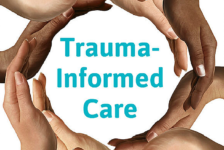NYSARH was selected to administer $1.1 million for Rural Health Care Access Development and Rural Health Network Development programs included in the 2019-20 NYS budget. We are pleased to announce that this project has been successfully completed having overcome several challenges. A survey of 2019 financials demonstrated that for every $1 of NYS RHN funding, the RHNs were able to secure $2.93 of funding from other sources.
Rural Access Hospital Development Program
The purposes of the funding are to allow small rural hospitals to:
- Strengthen infrastructure or capacity,
- Improve and/or sustain rural critical access hospital activities,
- Plan or implement diversification of underutilized acute care beds,
- Plan or implement projects that diversify hospital services,
- Plan or implement activities for improving cost efficiencies,
- Integrate service with other hospitals and community-based providers.
Some examples of projects implemented with the Appropriation funds include:
- Purchased new or replacement medical equipment [such as high-definition endoscopic equipment and vital sign, ultrasound, mammogram and ECG machines]
- Ramped up technology and equipment to deliver telehealth services
- Renovated clinical space to permit visiting sub-specialists to practice at rural hospital [rather than the patient needing to travel to his/her normal location], improve accessibility and enhance patient safety
- Modernized hospital technology, communication and records systems to improve operational efficiencies and collaboration with other providers.
- Supported recruitment and retention of healthcare professionals.
Rural Health Network Development Program
The purposes of the funding are to support people in rural communities to facilitate access to quality healthcare, health promotion and healthy lifestyles.
- Encourage and strengthen cooperation through affiliations, coalitions or partnerships that enhance and coordinate needed health care services in rural areas,
- Increase community involvement and locally generated, innovative solutions to health system issues in rural area,
- Support the development and continued vitality of comprehensive, cost-effective health care systems serving rural areas,
- Increase access to healthcare services and fill gaps in service delivery,
- Increase the numbers of health care personnel trained and practicing in rural communities,
- Strengthen the accountability of local providers for improvement in key public health and/or health care outcomes in the communities they serve; and foster improvements in the economic position of the local economy.
Some examples of projects implemented with the Appropriation funds include:
- Facilitated access to healthcare [outreach to underserved populations, transportation, insurance navigation, community health workers].
- Health education, disease management and prevention [health literacy, chronic disease self-management, farmer’s markets, safe sleep, oral health, obesity prevention, diabetes prevention, complete streets].
- Cross-sector collaborative initiatives [suicide prevention, opioid response, 211, peer support groups, lead hazard in housing, food as medicine].
- Healthcare workforce development [youth pipeline programs, service programs such as AmeriCorps, training for EMS volunteers].
- Modernized technology, communication and records systems to improve operational efficiencies and collaboration with other providers.
Supported recruitment and retention of healthcare professionals.



